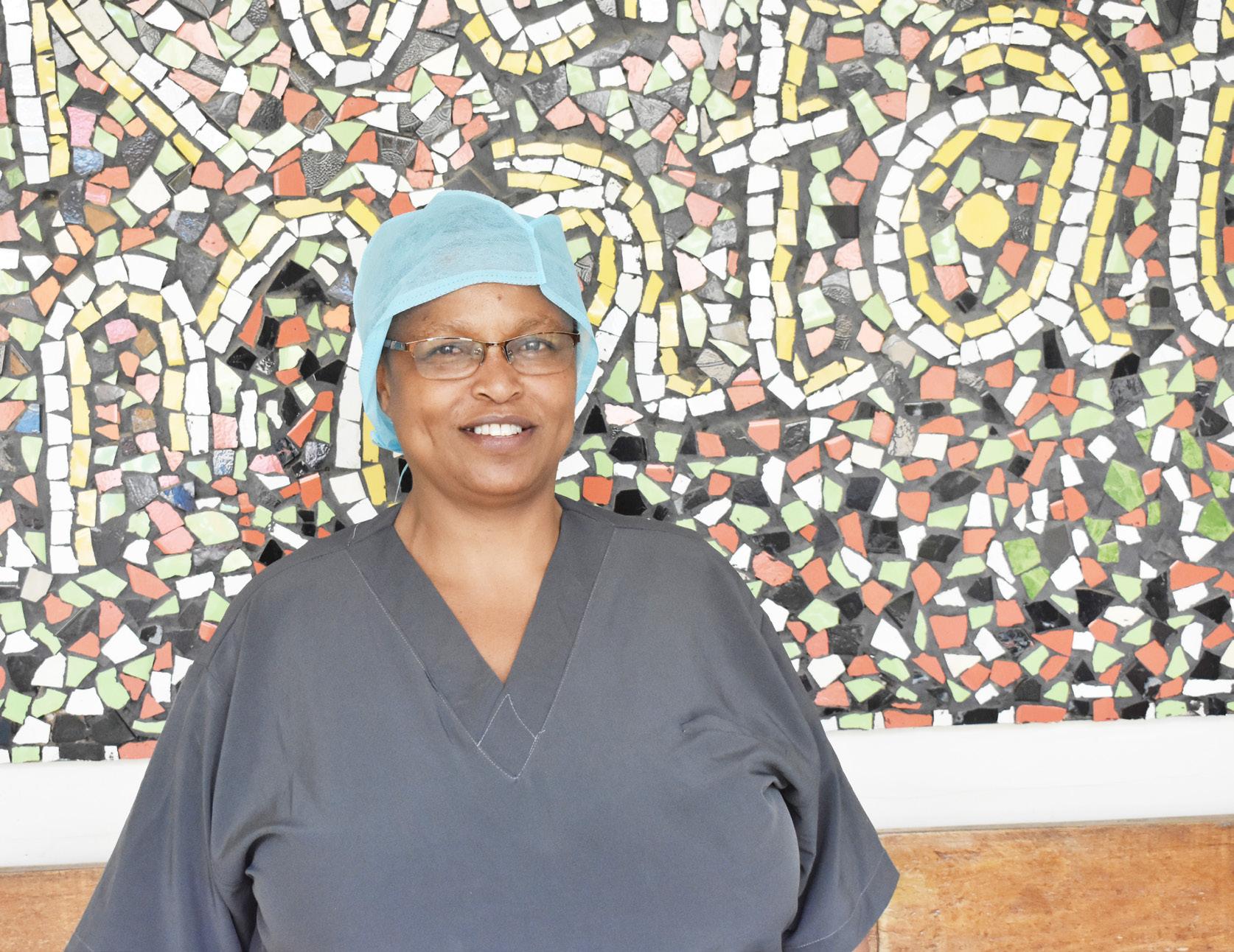
3 minute read
Epilepsy: From a mother’s eye Positive mentions from KNH facebook
Epilepsy: From a mother’s eye
By Faith Kawira
Advertisement
Epilepsy is a Central Nervous System Disorder in which brain activity becomes abnormal, causing seizures or periods of unusual behavior, sensations, and sometimes loss of awareness.
It is more common than we perceive and it can affect people of all ages and gender with main symptoms being temporary confusion, a staring spell, stiff muscles, uncontrollable jerking, movements of the arms and legs, loss of consciousness or awareness; including psychological symptoms such as fear and anxiety depending on which type it is.
Electroencephalogram (EEG) is the most common test used to diagnose epilepsy and in this test, electrodes are attached to the scalp with a pastelike substance or cap and the electrodes record the electrical activity of the brain.
Some of the main causes of epilepsy are brain injury, genetic influence, brain abnormalities such as brain tumors, prenatal injury, parasitic infections such as meningitis, developmental disorders like autism and ADHD, and sometimes no particular cause at all.
The Newsline team talked with Ms. Joan Kagema, Senior Nursing Officer Kenyatta National Hospital and she narrated her journey towards being the epilepsy warrior that she is today.
Ms. Joan Kangema was among the recipients of the Epilepsy Awards Africa (EAA) 2021. She was accorded the ‘Awareness award’ for her various Webinar presentations about Epilepsy.
“Back in 1988, my son who was two and half years old got into a home accident and I rushed him to Nyeri Hospital where we were admitted for 6 months. The head injury led to him suffering from epilepsy and since he was young, more complications arose that led to his transfer to Kenyatta National Hospital to see a Neurologist,” Joan stated. Epilepsy causes disability and since her child was very young, it affected him intellectually as he grew. “I was depressed, asking God many questions; ‘why me?’, ‘why my son?’. I was young and I stayed in KNH for another 6 months before our discharge. The kind of care that my son received from the doctors made me pursue nursing and later on major in epilepsy and neurodevelopmental disorders to be able to manage my child better,” she recalled.
She later pursued Nursing at Tumutumu School of Nursing and got a job at KNH as a certified nurse.
“I enrolled my son to school where he only managed to get up to class five as learning became almost impossible in a normal school. The seizures increased which meant whenever it happened, a part of his brain got damaged which affected him intellectually.”
“Rushing him to hospitals, moving from work to cater for him, unexpected calls, his disruption of studies, all this got worse and I got overburdened. I moved him to a school for the Intellectually Challenged where learning became a bit easier”.
Although the family was supportive, Ms. Joan still received comments attaching such conditions to some African cultural beliefs such as curses which of course didn’t leave her feeling any better.
“My son experienced many challenges growing up; the seizures occurred more often and at 4 years, he almost lost his life as he landed in ICU here at KNH”, Nurse Joan continued.
“He graciously survived this major seizure and later she got a neurologist and a pediatrician from KNH who helped her manage his son up to the age of 13 and he was enrolled in the adult care afterward.”
PHOTO |FAITH KAWIRA
Ms. Joan Kagema, Senior Nursing Officer Kenyatta National Hospital
PHOTO |NEWS MEDICAL
A man experiencing an epileptic attack











